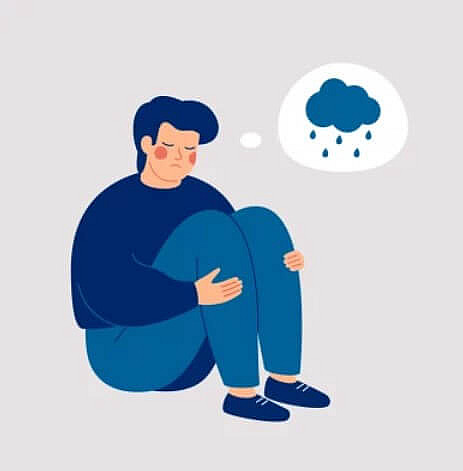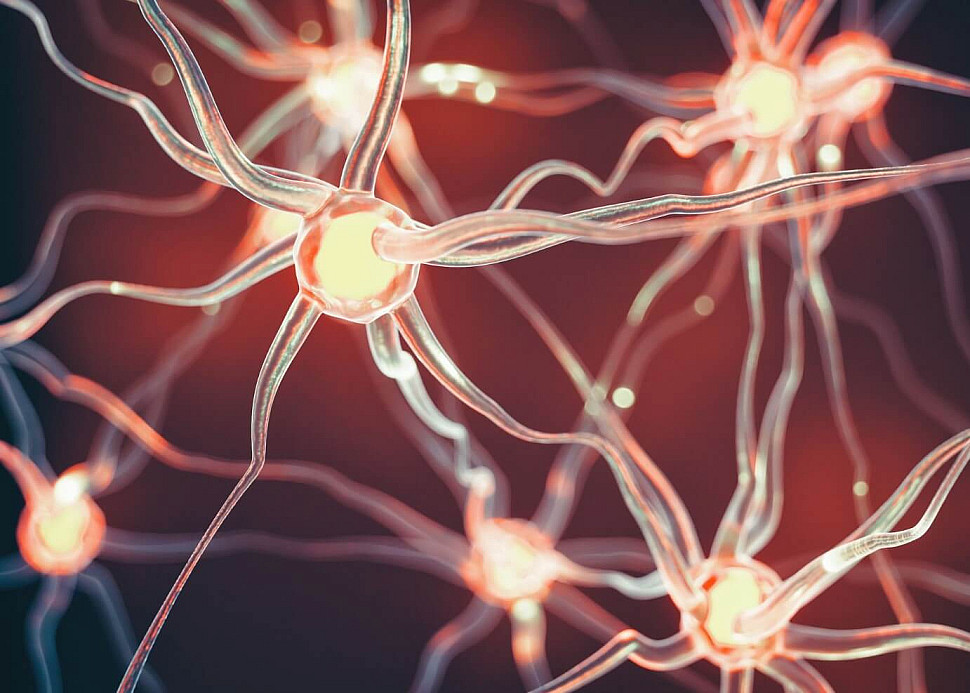Causes of depression

In the human body, the nervous system plays a leading role in regulating the work of all organs and systems of our body. In addition, it is the basis of the psyche, that is, it is the soil (or matter) on which mental functions develop: perception, thinking, memory, emotions, will, personality traits.
The state of the nervous system and psyche directly determines the health of the entire organism. A healthy nervous system and psyche ensure the normal functioning of the entire organism.
Disorders and diseases of the nervous system provoke diseases of internal organs, determine susceptibility to infectious diseases, allergic reactions, affect the body's ability to regenerate and recover.
"Nervous soil" is usually called any painful symptoms or healthy manifestations in the body caused by changes in the mental sphere.
Doctors even singled out a whole direction in medicine and a whole group of diseases caused by disturbances in the nervous system - psychosomatics.
Psychosomatic diseases include a large list of pathological conditions:
- hypertension,
- bronchial asthma,
- irritable bowel syndrome,
- eczema,
- obesity or pathological thinness,
- central hyperthermia (increased temperature), etc.
That is, all these disorders arise on "nervous soil".
Many normal (i.e. not painful) physical sensations in the body, familiar to everyone, have a mental origin and develop on "nervous soil".
The most common of them: a feeling of heaviness in the chest or in the "solar plexus" when excited; a feeling of a warm wave when experiencing pleasure; or "coldness down the spine" when afraid; dry mouth, palpitations, shortness of breath, "internal trembling", weakness, restlessness, urge to visit the toilet, itching, etc.
"Depression can be caused by negative thoughts and inability to cope with difficulties"
Not everyone who is facing hardship or crisis is depressed. People with a strong nervous system often cope with life's challenges without serious consequences.
However, long-term experiences and thoughts about the past and future can have negative effects on health and lead to nerve disorders. This is not necessarily due to the fact that the person is weak and prone to self-pity. The cause may be physiologic changes in the body. Clinical depression is a serious disorder that requires long-term and complex treatment.
Why is it so hard to quit smoking?
Smoking cessation causes discomfort because nicotine is incorporated into the body’s biochemical processes. As a result, there is an acute shortage of the usual "participant" of these processes, and the body requires a return to the previous state. However, with patience, the body adapts, and all processes begin to proceed normally.
Not everyone is able to endure this period. The problem is not willpower or reluctance to quit, but rather cellular metabolism. These processes depend largely on genetics. For example, the tendency to alcoholism or lactose intolerance is also determined by heredity.
"Nervous system cells are incapable of recovery"
According to this myth, stress inevitably leads to the death of the cells of the nervous system. But in reality, the death of nerve cells is a natural, ongoing process. Stress kills not cells, but neurotransmitters, the substances that make them interact with each other.
Prolonged stress causes regular destruction of these substances, leading to their deficiency in the body. As a result, complications arise:
- lack of pleasure from favorite activities;
- apathy;
- loss of meaning in life.
But nerve cells themselves do update — and in different parts of the brain at different rates, from 15% per year to all 100%.

Laziness as a protective mechanism: when rest is more important than work
Laziness is not just a lack of desire to work. In fact, it is an important evolutionary device that helps to save energy. Basic instincts are at the heart of human behavior: seeking food, procreation, and self-preservation. The desire to preserve vitality is inherent in every living being.
Every living being, including humans, seeks to derive energy at a minimum cost and use it rationally. During periods of illness, laziness becomes a natural way to focus on recovery. Affected people may want to sleep more or lie down rather than be inactive, including working, eating, and socializing.
However, persistent laziness, incapacity for work, and apathy can be symptoms of a variety of disorders, from chronic fatigue syndrome to more serious and dangerous disorders.
Interestingly, there are people who actively seek activities, and for them idleness is a source of discomfort and anxiety. But it is worth remembering that workaholism can also be a sign of mental distress.
Chronic fatigue: how to get rid of it?
After a full night's rest, the body of a healthy person is restored. However, some people still feel tired despite adequate sleep and physical inactivity. This can be due to disruptions in energy processes at different stages of energy production and use.
Among the reasons that cause such disorders, we can distinguish:
- Thyroid disorders
- infectious diseases;
- ental disorders and other factors.
Thus, simply increasing sleep to 8 hours is not enough to eliminate chronic fatigue. It is necessary to identify and eliminate the true cause of the lack of energy by seeking the help of a doctor.

